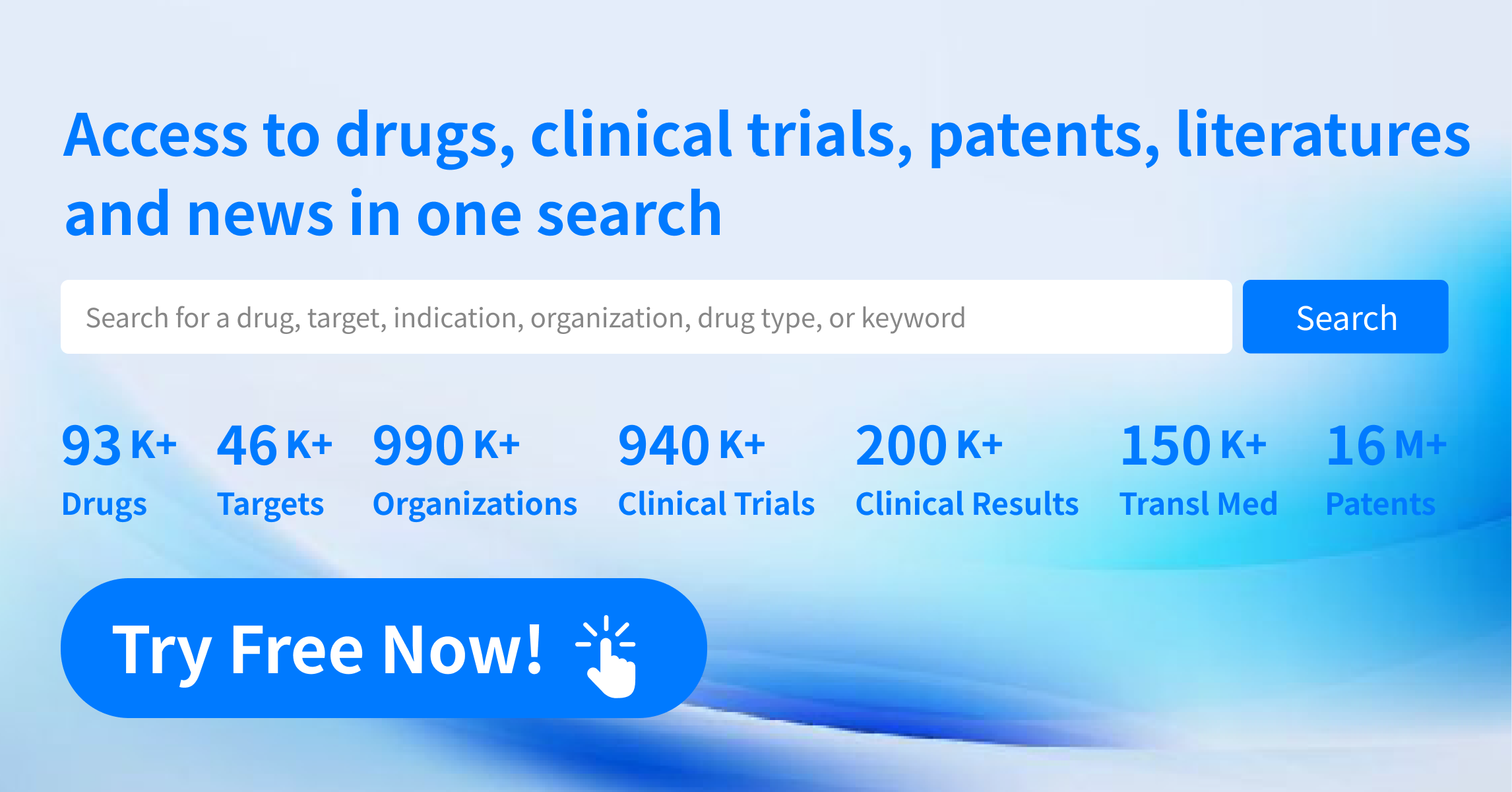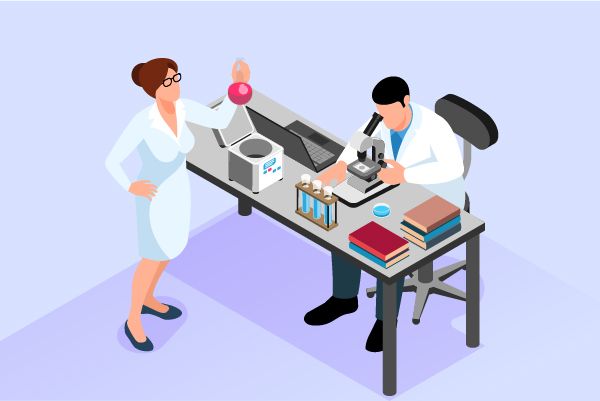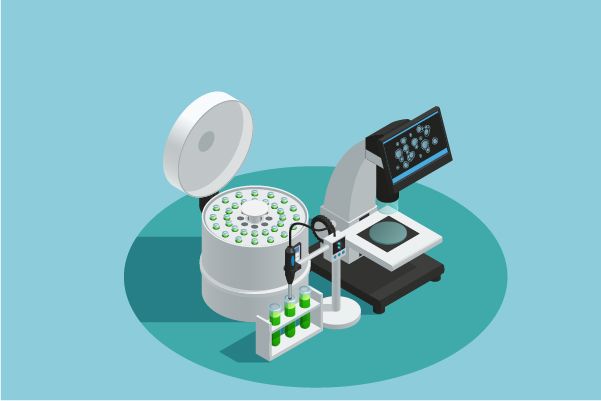Pharma Frontiers: Daily Digest of Global Pharmaceutical News – Aug 22
1.Johnson & Johnson's bispecific antibody Rybrevant, in combination with Lazcluze, approved by FDA for first-line treatment of lung cancer
On August 21, Johnson & Johnson announced that the U.S. FDA has approved its bispecific antibody Rybrevant (amivantamab) in combination with the third-generation oral EGFR tyrosine kinase inhibitor (TKI) Lazcluze (lazertinib) for first-line treatment of adult patients with locally advanced or metastatic non-small cell lung cancer (NSCLC) harboring EGFR exon 19 deletions or exon 21 L858R substitution mutations, as confirmed by an FDA-approved test. Trial results indicated that the combination of Rybrevant and Lazcluze reduces the risk of disease progression or death by 30% compared to the active control medication. This FDA approval is primarily based on the positive results from the Phase III MARIPOSA clinical study, which evaluated the efficacy and safety of the Rybrevant and Lazcluze combination therapy in comparison with the active control TKI drug Tagrisso, for first-line treatment of patients with locally advanced or metastatic NSCLC bearing EGFR exon 19 deletions or exon 21 L858R substitution mutations. Analysis showed that the Rybrevant and Lazcluze combination reduced the risk of disease progression or death by 30% compared to the control drug, with median progression-free survival (PFS) of 23.7 months versus 16.6 months. Additionally, the median Duration of Response (DOR) for the combination therapy group was 9 months longer than the active control (25.8 months vs 16.7 months), which was a secondary endpoint of the study. The safety profile of the combination therapy was consistent with the known safety profiles of its components. Rybrevant is a humanized EGFR/MET bispecific antibody with multiple mechanisms of anticancer activity, capable of blocking EGFR and MET-mediated signaling and directing immune cells to target tumors carrying activated and resistant EGFR/MET mutations and amplifications. Lazcluze is a highly selective, third-generation oral EGFR TKI capable of penetrating the blood-brain barrier.
2.The new indication marketing application for Orelabrutinib, a BTK inhibitor by InnoCare Pharma, has been accepted by the CDE
On August 21st, the Center for Drug Evaluation (CDE) of the National Medical Products Administration of China announced on its website that it has accepted a new drug application for a new indication for Orelabrutinib, a novel BTK inhibitor developed by InnoCare Pharma. Orelabrutinib is an irreversible Bruton's tyrosine kinase (BTK) inhibitor designed for the treatment of lymphoma and autoimmune diseases. In December 2020, Orelabrutinib was approved in China for the treatment of relapsed/refractory chronic lymphocytic leukemia (CLL)/small lymphocytic lymphoma (SLL) and relapsed/refractory mantle cell lymphoma (MCL). In April 2023, it received approval for patients with marginal zone lymphoma (MZL) who had previously undergone at least one treatment. Besides, InnoCare Pharma is conducting multicenter, multi-indication clinical trials involving Orelabrutinib as monotherapy or in combination treatments in China and the United States, targeting conditions such as the MCD subtype of diffuse large B-cell lymphoma (DLBCL), among others.
At the 2023 American Society of Hematology (ASH) annual meeting, InnoCare Pharma presented data from a researcher-initiated clinical trial (cwCLL-001 study) involving Orelabrutinib, Fludarabine, Cyclophosphamide, and the anti-CD20 monoclonal antibody Obinutuzumab (OFCG) for first-line treatment in CLL patients. The results revealed that out of the study's participants, 19 completed 3 cycles of OFCG treatment and were evaluable. Among these, 75% (15/20) achieved peripheral blood minimal residual disease (MRD) negativity, and 57.9% (11/19) attained bone marrow MRD negativity. The overall response rate (ORR) and complete response (CR) rate were 100% and 38.9% respectively. After completing all 6 cycles, 14 evaluable patients displayed deeper remission during cycles 4 to 6, with 100% achieving peripheral blood MRD negativity and 85.7% bone marrow MRD negativity; ORR and CR rates were 100% and 57.1% (8/14), respectively. Overall, OFCG demonstrated good safety and the results preliminarily suggest that the limited OFCG treatment regimen can offer rapid and deep remission with favorable safety profile for treatment-naive CLL patients.
3.Lilly announces impressive long-term Phase 3 trial results for its major therapy, reducing the risk of diabetes progression by 94%!
Eli Lilly and Company announced on August 21st the positive top-line results from the three-year Phase 3 SURMOUNT-1 clinical trial of their groundbreaking drug tirzepatide. The analysis demonstrated that a weekly injection of tirzepatide significantly reduces the risk of progression to type 2 diabetes by 94% in adults with prediabetes who are overweight or obese. Additionally, tirzepatide enabled sustained weight loss throughout the treatment period. By the end of the treatment period, adults receiving a 15 mg dose experienced an average weight reduction of 22.9%.
SURMOUNT-1 is a multicenter, randomized, double-blind, placebo-controlled Phase 3 clinical trial designed to evaluate the efficacy and safety of various doses of tirzepatide (5 mg, 10 mg, and 15 mg) as an adjunct to a low-calorie diet. The results announced include data from 1,032 overweight or obese adults with prediabetes, who were randomly assigned to receive either a placebo or different doses of tirzepatide over a treatment period of 176 weeks, followed by a 17-week drug withdrawal period (totaling 193 weeks). The preliminary analysis of all participants at 72 weeks was previously published in The New England Journal of Medicine in 2022.
The analysis of the key secondary endpoint showed that tirzepatide significantly reduced the risk of progression from prediabetes to type 2 diabetes from baseline to week 176 (p<0.0001). Aggregate data from all tirzepatide doses indicated a 94% reduction in the risk of developing type 2 diabetes compared to placebo. Another key secondary endpoint analysis showed that tirzepatide (10 mg and 15 mg) achieved statistically significant weight reduction from baseline to week 176 in overweight or obese adults with prediabetes, compared to placebo (p<0.001). The average weight loss at week 176 for participants administered tirzepatide was 15.4% (5 mg), 19.9% (10 mg), and 22.9% (15 mg) versus 2.1% for those receiving placebo.
4.BMS Initiates Phase III Clinical Trial of Nivolumab Relatlimab Combination versus Pembrolizumab
On August 20, the ClinicalTrials.gov website indicated that Bristol-Myers Squibb (BMS) has initiated a Phase III clinical trial comparing a combination therapy of Nivolumab and Relatlimab (Opdualag) versus Pembrolizumab. This study is a random, open-label trial (n=800) designed to evaluate the efficacy and safety of Nivolumab Relatlimab combination with chemotherapy (Carboplatin + Pemetrexed + Cisplatin) as a first-line treatment against Pembrolizumab with chemotherapy in adult patients with stage IV or recurrent non-squamous non-small cell lung cancer (nsq-NSCLC) who have not previously received systemic therapy and have PD-L1 expression levels between 1% and 49%. The primary endpoint of the study is Overall Survival (OS).
Opdualag, the trade name for the Nivolumab Relatlimab combination, is a "PD-1+LAG-3" dual immunotherapy developed by BMS. It was approved in March 2022 in the United States for the first-line treatment of adults and children aged 12 and older with unresectable or metastatic melanoma. The marketed version is an intravenous injection formulation. In the Phase II/III RELATIVITY-047 study targeting melanoma, compared to Nivolumab alone, the combination therapy extended the patients' Progression-Free Survival (PFS) by 2.2 times (10.1 vs. 4.6 months, HR=0.75, P=0.006).
BMS is currently investigating the efficacy of this combination as an adjuvant treatment for post-surgical melanoma in the RELATIVITY-098 study. Additionally, BMS has developed a subcutaneous injection formulation of the combination, currently being evaluated in a Phase III RELATIVITY-127 study comparing it to the intravenous formulation.
As a veteran player in the development of PD-1 combination therapies, BMS has successfully launched dual immunotherapy regimens "PD-1+CTLA-4" and "PD-1+LAG-3", providing viable options for PD-1 followers in choosing combination partners.
5.Hansoh Pharma's ADC Cancer Drug Designated as FDA Breakthrough Therapy
On August 20th, Hansoh Pharma announced that its partner, GlaxoSmithKline (GSK), has received FDA Breakthrough Therapy designation for HS-20093 (GSK5764227). This drug is a B7-H3-targeted antibody-drug conjugate (ADC) currently being evaluated for the treatment of patients with extensive-stage small cell lung cancer (ES-SCLC) who have progressed during or after platinum-based chemotherapy (relapsed or refractory).
HS-20093 is a novel B7-H3-targeted ADC, consisting of a fully humanized B7-H3 monoclonal antibody covalently linked to a topoisomerase inhibitor (TOPOi) payload. It is undergoing multiple Phase 1 and Phase 2 clinical trials in China for the treatment of lung cancer, sarcomas, head and neck cancer, and other solid tumors. According to a press release by Hansoh Pharma, the FDA Breakthrough Therapy designation was supported by data from the ongoing Phase 1 ARTEMIS-001 open-label, multicenter first-in-human clinical trial. Over 200 patients participated in this trial, which assessed the safety, tolerability, and preliminary anti-tumor activity of HS-20093 in locally advanced or metastatic solid tumors, including relapsed or refractory ES-SCLC. The results of the trial are set to be presented at the World Conference on Lung Cancer (WCLC) in the United States from September 7 to 10, 2024.
At the American Society of Clinical Oncology (ASCO) 2023 annual meeting, Hansoh Pharma released preliminary results from the ARTEMIS-001 study. This study is divided into two parts: Part 1a is a Phase 1a dose-escalation study to assess the safety, tolerability, pharmacokinetics, and preliminary efficacy of HS-20093 in participants with advanced solid tumors who have failed or are intolerant to existing standard therapies. This part employs an accelerated titration combined with an "i3+3" design to systematically increase preset dose cohorts. Part 1b is a Phase 1b dose-expansion study that evaluates the effectiveness and safety of HS-20093 at potential target doses in patients with cancers such as lung, prostate, esophageal, and head and neck tumors. The administration method is an intravenous injection, given once every three weeks (Q3W).
6.Multitude Therapeutics Announces Licensing Partnership for ADC Cancer Therapy
On August 20, Multitude Therapeutics together with Adcendo announced a licensing agreement for a novel, highly differentiated Anti-Tissue Factor (Anti-TF) antibody-drug conjugate (ADC) known as ADCE-T02 (developmental code AMT-754). Under the agreement, Adcendo will obtain exclusive rights to develop and commercialize the ADC globally outside Greater China, while Multitude Therapeutics will retain rights within the Greater China region. Tissue Factor (TF) is overexpressed in a variety of cancers including bladder, non-small cell lung, colorectal, cervical, esophageal, head and neck, and gastrointestinal cancers, yet its expression is restricted in normal tissues, making it an excellent target for ADC therapies. ADCE-T02 is a novel, highly differentiated TF-targeting ADC, designed to minimize impact on the coagulation pathway. The ADC utilizes the T1000-exatecan linker-payload technology platform, which has been shown to amplify the "bystander effect", enhance linker stability, and potentially overcome resistance mechanisms. These differentiated characteristics are anticipated to translate into higher clinical response rates, longer durations of therapeutic effect, and improved safety, offering an exceptional therapeutic window. ADCE-T02 has been filed for clinical trials in Australia and is expected to file an IND in the USA soon. According to the terms of the agreement, Multitude Therapeutics will receive an upfront payment in the tens of millions of dollars, with potential for total milestone payments exceeding one billion dollars, pending subsequent development, regulatory, and commercial milestones.
7.Merck Acquires Dual-Antibody ADC for $37.5 Million
On August 20th, Kelun Botai Biomedicine was notified in writing by Merck that it will exercise its exclusive option for the innovative dual-antibody ADC project, SKB571, and pay Kelun Botai $37.5 million. Additionally, contingent upon reaching certain development and sales milestones, Merck will make further milestone payments to Kelun Botai. Kelun Botai will retain the rights to develop, use, manufacture, and commercialize SKB571 in Mainland China, Hong Kong, and Macau. SKB571 is an innovative dual-antibody ADC targeting multiple solid tumors, including lung cancer and gastrointestinal tumors. This product features carefully selected scientific target combinations and differentiated dual-antibody molecular designs to enhance tumor targeting and help overcome tumor heterogeneity, thereby improving therapeutic efficacy. Through a strategy using highly hydrophilic toxins and linkers, the product demonstrates favorable pharmacokinetic properties. Preclinical studies have shown promising anti-tumor effects and safety profiles in various human tumor xenograft (PDX) models and cynomolgus monkeys. An IND application for this product will be submitted soon. As a pioneer in exporting China's new ADC drugs, Kelun Botai's Trop2 ADC molecule is significantly advanced in international clinical trials by collaborative partners, with ten global Phase III trials concurrently underway covering multiple tumor types. Following Trop2 ADC, Kelun Botai is actively developing a range of next-generation ADC technologies and broader conjugate drug technologies, expanding into non-oncological areas such as autoimmunity. The international deployment of the dual-antibody ADC marks a new era of accelerated transformation for Kelun Botai’s next-generation ADC technology platform.
How to obtain the latest research advancements in the field of biopharmaceuticals?
In the Synapse database, you can keep abreast of the latest research and development advances in drugs, targets, indications, organizations, etc., anywhere and anytime, on a daily or weekly basis. Click on the image below to embark on a brand new journey of drug discovery!




